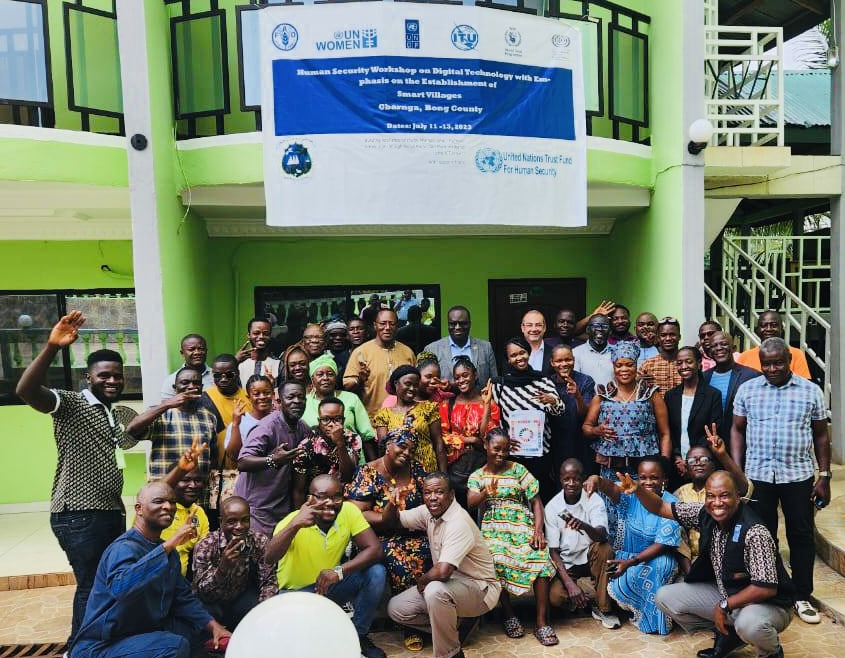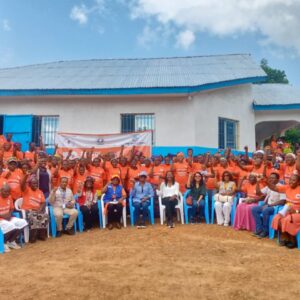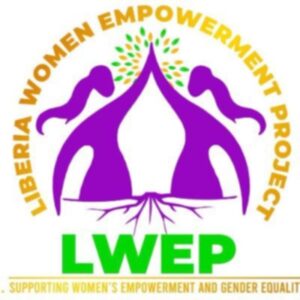UN Human Security Trust Fund Project Trains Local Farmers, Others on Digital Technology

By: Sylvester Choloplay
Liberia: The United Nations Agencies under the Human Security Trust Funds project has concluded a three-day training on digital technology with emphasis on the establishment of “Smart Village” in rural Liberia.
The workshop began on Tuesday, 11th July 2023, ended on 13th July, 2023 in Gbarnga, Bong County.
The workshop focused on the creation and accessibility of digital platforms that would assist local farmers, small and medium size businesses to attain sustained improvement in food production, marketing and service delivery, with the overall objective to deepen their understanding of Smart Village and digital technology, explore its role in the broader development context, particularly in the area of agriculture, health, finance, employment, education and market which are central to the attainment of the Sustainable development Goals (SDGs).
The workshop which was conducted within the framework of the Human Security Trust Fund project titled “Building Resilience of Youth, Women and Vulnerable Groups through Social Projection Floor in Liberia using ITC” aimed to address the complex multi-sectorial and inter-connected challenges of human insecurities particularly food, social, and economic issues for the most vulnerable and neglected populations of the North-Central region of Liberia at the community level. The project will promote the concept of human security through implementing this initiative as a model human security with “protection” and “empowerment” measures as the most appropriate approach. It will target 3,000 young women and men household heads including youth living with disabilities as direct beneficiaries (targeting 50% male and 50% female participants) and 10,000 indirect beneficiaries. It is being implemented by five UN agencies including FAO as the lead, ILO, UNDP, WFP and UN Women.
The workshop brought together 40 participants including key stakeholders, particularly partner agencies of the project, including state and non-state actors and representatives of civil society organizations, farming communities, health practitioners and educators to share their experiences and elevate the issues and challenges they face with accessing digital technology within their communities.
The workshop also creates the platform to explore alternative solutions in bringing digital technology to rural communities that are somewhat lacking far behind in the national transformation drive in Liberia.
Speaking at the opening of the workshop, the United Nations Resident Coordinator Madam Christine Umutoni acknowledged the significant impact of the human security trust funds project on the lives of vulnerable men and women and youths in the rural parts of Liberia. She commended the participating UN Agencies named above and International Telecommunications Union (ITU) along with their government counterparts for the excellent partnership and collaboration in delivering this project.
Madam Umutoni said the project, specifically digital innovation, will enhance community development and provide access to the utility of the SDGs relevant to services using ICT and digital technologies.
She called on the Joint Programme Implementation Team (PIT) and the community members to work collectively to successfully achieve the goals of the program in transforming the lives of vulnerable community members in the targeted communities.
“I love collaboration! Collaboration is very important for the success of this program. All of the partnering organizations on this project are to come together and work in collaboration for the success of this program, because this program, when implemented successfully will transform the lives of many Liberians.”
Giving the overview of the workshop, the Programme Officer of UNDP in Liberia Robert Dorliae said the workshop is intended to leverage the potential of digital technology and how state and non-state actors can leverage the huge benefit of digital technology to create savings for citizens, governments, and businesses by reducing transaction costs, increasing efficiency, and driving innovation in service delivery, particularly to the poorest and most disadvantaged groups in the targeted communities.
Also speaking on behalf of the ILO Country Director responsible for Nigeria, Ghana, Liberia and Sierra Leone, Madam Vanessa L. Phala, the ILO Country Coordinator for Liberia, Salif Haji Massalay, highlighted the impact the project is making in the targeted counties. He mentioned that the entrepreneur component of the project styled: Start and Improve Your Business (SIYB) has already empowered Two Hundred Sixty-Four (264) youth, women and other vulnerable groups in the targeted counties through entrepreneur training on business management along with a start-up capital as a means of providing livelihood opportunities.
The participants at the workshop embraced the United Nations Human Security Trust Fund project as the best alternative approach to deliver SDG-related activities and improve the quality of life for rural populations through an inclusive digital transformation process.
The participants were selected from all nine project communities in each of the three targeted counties: Yeala, Zorzor, and Salayea in Lofa County; Gbanquoi, Saclepea and Zuluyee in Nimba County; and Forquelleh, Botota and Palala in Bong County.
Giving the overview of the human security project, the Head of Programmes, FAO in Liberia, Octavius Quarbo said the digital initiative will focus on promoting community driven e-agriculture systems, including food system planning, implementation and management, education, skills development and livelihood strategies such as income generation, cooperative administration, health and insurance for women, youths and the vulnerable population.
The project focuses on three key interrelated outcomes with the first (Outcome 1) focusing on: Increased access to digital innovation for women and young males and females in the targeted counties for inclusive human security and community empowerment. This outcome aims to enhance access to and utility of SDG relevant services using ICT and digital technologies.
The project is expected to educate the participants on digital technology and its relevance to achieving SDGs, raise awareness on how digital technology can avail a wide range of opportunities that will accelerate progress towards building community resilience through social protection floor, and Increased confidence in local communities on the usage and the benefits of digital technology that are expected to be accrued to them.
The smart village initiative will be supported by the International Telecommunications Union (ITU) and the Liberia Tele Communication Cooperation (LTC).
About 10,000 persons from within communities of the targeted 3 counties are expected to benefit indirectly from the knowledge that will be imparted to them through the workshop.



